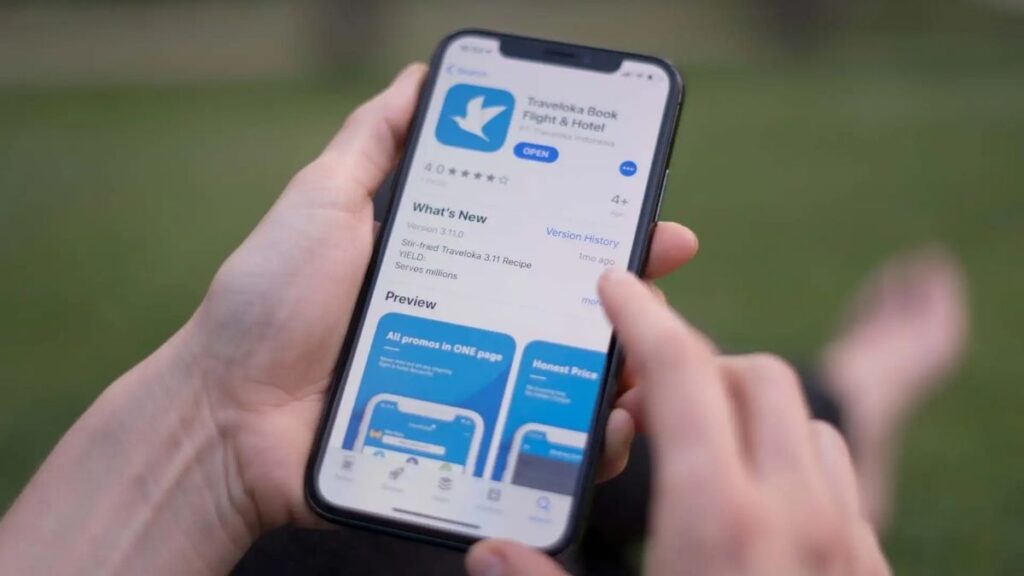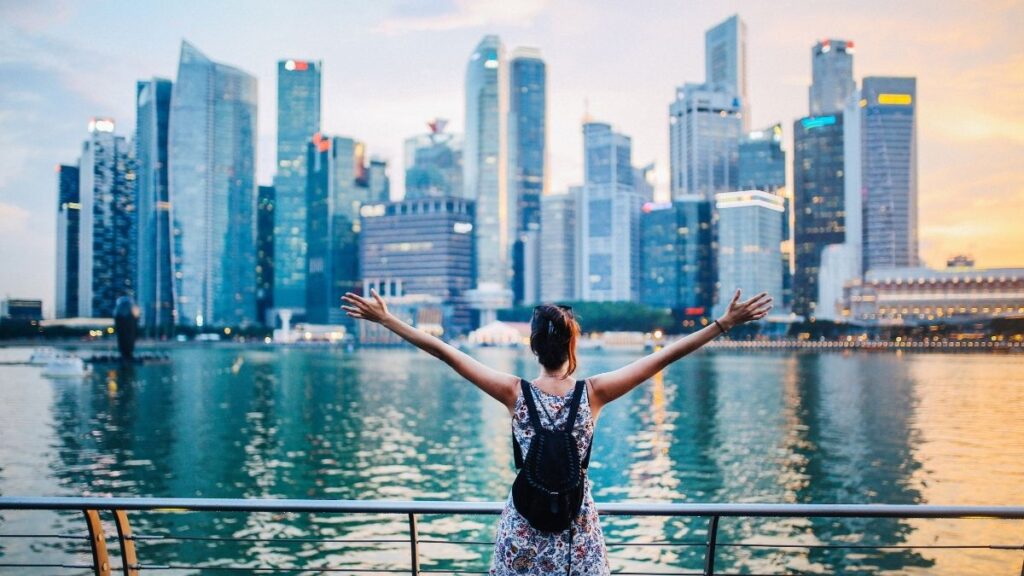I took my first flight in over two years a week ago. It was such a surreal experience, given the fact I seem to have forgotten what it was like to get on a flight. However, it is also a reality check that travel is actually coming back, so it is a time to rejoice.
As the borders continue to open and we’re rolling back the restrictions, what does this mean for the travel industry?
To find out more, we speak to Pascal Gekko, Vice President, International Accommodation, Traveloka. There are fundamental changes that are happening and we’re still catching up. Travel is poised for a lot of change and we’re just figuring out what is going to happen.
READ MORE: We speak to Deemples founder David Wong about golf and travel.
For those who don’t know, Traveloka is a one-stop app for all your travel and lifestyle needs. They have been seeing a significant rise in travel interest over the last few months in Asia and the rest of the world. In fact, when the Vaccinated Travel Framework was announced, Traveloka observed a 152% growth in average search volume and 227% jump in bookings.
Here’s what Pascal had to share.
Can you share what has fundamentally changed in travel and how the industry needs to adapt?
The pandemic and digital age have accelerated a mobile-first culture, and there’s no denying the convenience of online channels for these highly mobile and tech-savvy users. Online channels have also become ever more prevalent in the purchase journey of consumers in Southeast Asia – around 80% of channels that consumers use to browse and discover new products are online. Consumers have become accustomed to the convenience of digital platforms to complete day to day activities – from e-commerce to food delivery, and travel is no exception.

The increased demand for convenience has supported the rising popularity of superapps – instead of multiple apps to serve their needs, consumers are looking for just one app end-to-end for convenience and simplicity. With the development of technology and digital services, booking a hotel or flight simply takes minutes via a one-stop app at their fingertips. As international travel recovers further, we believe that the demand for convenience and instant access to information will only increase and eventually, it will be a key consideration for travellers looking for holistic experiences to fulfil their travel and lifestyle needs.
The pandemic has also altered consumers’ outlook on travel, with a greater focus on experiential travel, ‘revenge travel’ and purposeful travel. The past two years have given travellers time to reflect and relook their travel habits, prompting travellers to choose holistic experiences which allows them to connect with their destination as opposed to the pre-pandemic trend of touch-and-go experiences.
The integration of technology and travel will continue to be a central theme for the industry, and it is important for us to focus on investing in technology and data analytics capabilities to be ahead of the changing consumer needs and improve the experiences of their consumers.
What are some of the upcoming challenges you foresee that are on the horizon?
As international travel picks up, we have been witnessing strong pent-up demand for travel. Since early 2022 with the reopening of borders, Traveloka’s data have shown an increased volume of outbound travel bookings within Southeast Asia, and it has given rise to ‘revenge spending’ with consumers spending up to three times more as compared to pre-pandemic bookings. The resurgence of leisure travel has seen airlines and airports struggling to ramp up and support the sudden increase in demand.
It is also important to note that while the reopening of borders is welcome news, the situation remains fluid and regulations can change easily which may disrupt travel plans. It is crucial for travellers to be updated on the latest travel requirements prior to departure and ensure all documents are prepared to prevent travel stress and delays. At Traveloka, we understand this and have introduced flexibility within our products and services which helps relieve the stress and burden of our customers. Our high flexibility tickets as well as options such as “pay upon check-in” and “buy now stay later” options have been proven useful with the constantly changing travel restrictions and provided a positive experience for consumers.
We will continue to see surges in travel bookings with every wave of travel easing measures, and Traveloka remains agile to evolve with the demands of our users. We are focused on making people feel safe again – to travel and explore the world. On our superapp, services such as our safe travel page, provide updates on Covid-19 travel safety requirements that were announced by the governments of respective countries as well as provide tips to our users to stay healthy and safe as they plan for their next trip.
How did you guys stay afloat in the last two years?

During the pandemic, Covid-19 created unprecedented challenges for travel and tourism but it provided opportunities to innovate and evolve. At Traveloka, we shifted our focus to supporting the domestic industry through various partnerships with governments in the region, which has allowed us to focus on our local markets and provide products and services that are suited to their needs. Locally, for example, initiatives like the SingapoRediscovers Vouchers (of which Traveloka was an authorized booking partner) and marketing campaigns like SEEngapore (where Traveloka worked with the local authorities) have ignited interest in attractions and experiences that are closer to home.
It was key that we address the concerns of our customers, where we witnessed an immediate surge in enquiries to understand the status of their travel bookings following the change in lifestyle needs, as well as our merchant partners who were severely impacted by the travel restrictions. We recognised the gap in financial services and integrated it into our lifestyle superapp, allowing our Indonesian customers to complete transactions conveniently through our app. We’ve also launched Traveloka Eats Delivery to provide a platform for food and beverage businesses in Indonesia to cater to their customers during the lockdown.
READ MORE: Cheryl Ng from Lemi shares her thoughts on bringing stability back to travel.
Are there any Southeast Asian destinations that are popular at the moment?

Since the announcement of the Vaccinated Travel Framework on 24 March, we have noticed that the top three destinations for Singaporeans are Indonesia (specifically Jakarta and Bali), Malaysia and Vietnam. Within Southeast Asia, Singapore remains a popular destination for international tourists to book and visit.
What’s next for Traveloka?
As we move towards travel in a post-Covid-19 world, the convenience of a superapp further highlights its importance in providing a variety of services – from travel to local and financial services – for users from a single platform. Traveloka will continue to focus on serving our users’ needs in the key verticals of travel, local and financial services. As Southeast Asia’s lifestyle superapp, we are focused on anticipating, addressing and evolving with our users’ needs which have been fundamental in our approach to improving the business. Tapping on our knowledge and innovative team, we are excited to continue expanding and tailoring our portfolio of products to our customers across Southeast Asia to meet each market’s unique needs.
We also recognised that financial services will be a critical growth driver in the travel industry. As travel recovers, services that complement travel such as local and financial services will become even more important. Travellers in a post-Covid world will have higher expectations of travel as a holistic experience and will want an end-to-end solution to their travel and lifestyle aspirations. Last year, Traveloka doubled down in growing our financial offerings and we expect it to be a critical growth driver for us going forward as we continue to invest and build on providing seamless transaction experiences for our users.

